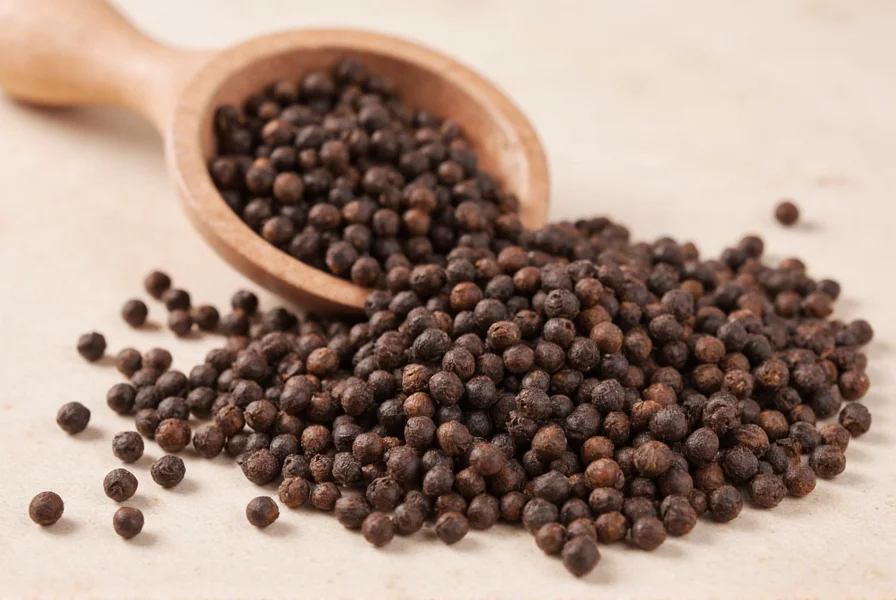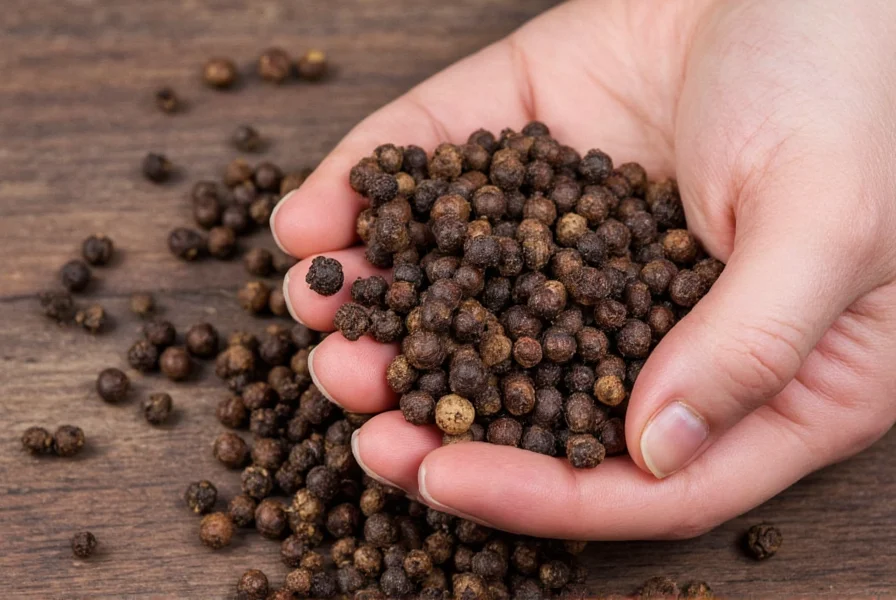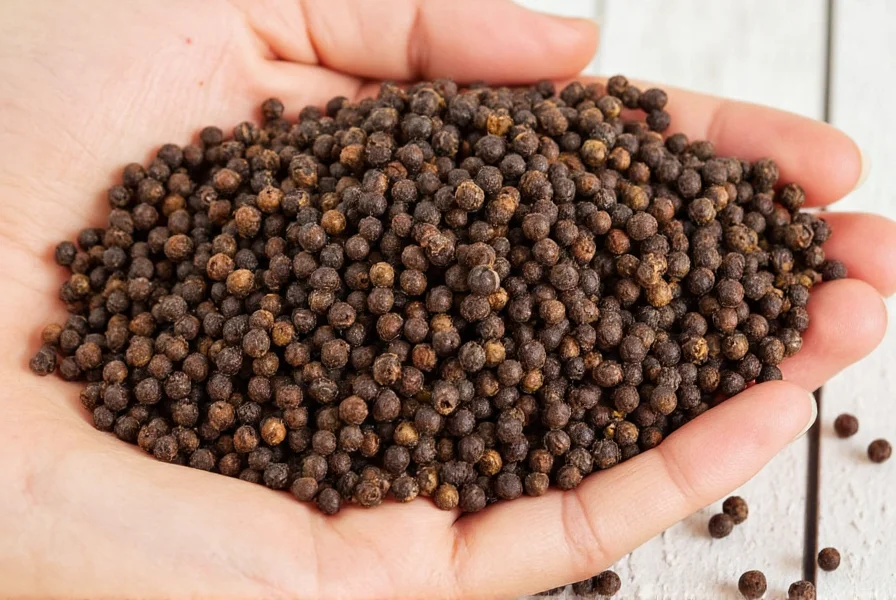Yes, black pepper is generally good for you when consumed in normal culinary amounts. The active compound piperine provides antioxidant and anti-inflammatory benefits while enhancing nutrient absorption, particularly of curcumin from turmeric. However, excessive consumption may cause digestive discomfort in sensitive individuals.
Black pepper isn't just a kitchen staple for adding heat to dishes—it's a powerhouse spice with scientifically supported health benefits. For centuries, traditional medicine systems have valued black pepper for its therapeutic properties, and modern research continues to validate many of these claims. Understanding black pepper health benefits scientific evidence helps separate fact from culinary folklore.
The Science Behind Black Pepper's Health Properties
At the heart of black pepper's health benefits lies piperine, the alkaloid responsible for its pungent flavor and distinctive aroma. This compound makes up approximately 5-10% of black pepper by weight and serves as the primary driver of its biological activity. When examining how does piperine in black pepper help absorption, research shows it inhibits certain enzymes in the liver and intestines that metabolize nutrients and medications, effectively increasing their bioavailability.
One of the most well-documented effects involves turmeric's active compound, curcumin. Studies demonstrate that adding just 20mg of piperine to curcumin increases its absorption by 2,000%. This synergistic relationship explains why traditional recipes often combine black pepper with turmeric-containing dishes.

Documented Health Benefits of Black Pepper
| Health Benefit | Scientific Support | Recommended Amount |
|---|---|---|
| Nutrient Absorption Enhancement | Multiple human studies showing 30-2000% increase depending on nutrient | 1/4-1/2 teaspoon daily |
| Antioxidant Activity | In vitro and animal studies demonstrating free radical scavenging | Regular culinary use |
| Anti-inflammatory Effects | Human trials showing reduced inflammatory markers at 10-20mg piperine | 1/2 teaspoon daily |
| Digestive Stimulation | Clinical evidence of increased digestive enzyme production | With meals as seasoning |
Enhanced Nutrient Bioavailability
Black pepper's most significant contribution to health comes from its ability to improve how your body utilizes other nutrients. Research published in Planta Medica confirmed that piperine increases the absorption of selenium, vitamin B6, beta-carotene, and curcumin. This makes black pepper particularly valuable when included in meals containing these nutrients. People often ask is black pepper healthy to eat daily—the answer is yes, in typical food amounts (about 1/4 to 1/2 teaspoon per day).
Antioxidant and Anti-Inflammatory Properties
Multiple studies have demonstrated black pepper's black pepper anti-inflammatory properties through its inhibition of inflammatory pathways. A 2020 review in Antioxidants highlighted piperine's ability to reduce oxidative stress markers in human trials. These effects may contribute to long-term protection against chronic diseases, though more human research is needed to establish definitive therapeutic doses.
Digestive Health Benefits
Black pepper stimulates the production of hydrochloric acid in the stomach, which improves digestion and reduces bloating. This explains why many traditional cuisines incorporate black pepper into meals—particularly those containing harder-to-digest foods. The spice also shows potential prebiotic effects, supporting beneficial gut bacteria according to preliminary research.
Potential Concerns and Considerations
While black pepper offers numerous benefits, understanding black pepper side effects and benefits provides a balanced perspective. Some individuals may experience:
- Mild digestive irritation when consumed in excess
- Potential interactions with certain medications (blood thinners, antiepileptics)
- Rare allergic reactions in sensitive individuals
Those with gastrointestinal conditions like ulcers or GERD should monitor their tolerance. The question is too much black pepper bad for you has merit—consuming more than 1-2 teaspoons daily may cause stomach discomfort in some people. However, typical culinary use presents minimal risk for most healthy adults.

Practical Recommendations for Consumption
To maximize benefits while minimizing potential issues:
- Use freshly ground pepper when possible—piperine degrades over time
- Combine with turmeric-containing dishes for enhanced curcumin absorption
- Include in morning meals to support digestion throughout the day
- Aim for 1/4 to 1/2 teaspoon daily as part of a balanced diet
- Avoid taking concentrated piperine supplements without medical supervision
Black pepper works best as part of a diverse, plant-rich diet rather than as a standalone remedy. Its true value lies in how it enhances the nutritional profile of the foods you already eat.
Black Pepper in Context: Comparing Spices
When evaluating black pepper health benefits scientific evidence against other common spices, black pepper holds a unique position. Unlike turmeric (which needs black pepper for optimal absorption), ginger, or cinnamon that offer direct therapeutic compounds, black pepper primarily serves as a bioavailability enhancer. This complementary role makes it exceptionally valuable in culinary medicine approaches.
Research comparing spice combinations consistently shows that meals incorporating multiple spices—including black pepper—deliver greater health benefits than single-spice interventions. This synergy effect underscores the importance of whole-food approaches rather than isolated compounds.
Conclusion: Balancing Benefits and Realistic Expectations
Black pepper delivers measurable health benefits supported by scientific research, particularly regarding nutrient absorption and antioxidant activity. While it's not a miracle cure, its role in enhancing the nutritional value of other foods makes it a valuable component of a health-conscious diet. The key is consistent, moderate use as part of diverse culinary traditions rather than expecting dramatic effects from isolated consumption.
Frequently Asked Questions
Does black pepper really help absorb nutrients better?
Yes, scientific studies confirm that piperine in black pepper significantly enhances nutrient absorption. Research shows it can increase absorption of curcumin by up to 2,000%, and improves uptake of selenium, beta-carotene, and vitamin B6 by 30-60%. This effect occurs through piperine's inhibition of certain metabolic enzymes in the liver and intestines.
How much black pepper should I consume daily for health benefits?
For general health benefits, 1/4 to 1/2 teaspoon of freshly ground black pepper daily is sufficient when used as a culinary seasoning. This provides approximately 5-20mg of piperine, the active compound. Consuming more than 1-2 teaspoons daily may cause digestive discomfort in sensitive individuals without providing additional benefits.
Can black pepper interact with medications?
Yes, black pepper may interact with certain medications because piperine affects how the liver metabolizes drugs. It can increase the absorption and effects of blood thinners, antiepileptic drugs, and some antidepressants. If you take prescription medications regularly, consult your healthcare provider before significantly increasing black pepper consumption or taking piperine supplements.
Is black pepper better than white pepper for health?
Black pepper generally offers more health benefits than white pepper because it retains the outer fruit layer (pericarp) which contains additional antioxidants and higher piperine content. White pepper undergoes additional processing that removes some beneficial compounds. Black pepper typically contains 5-10% piperine compared to 3-8% in white pepper, making it slightly more potent for health benefits.
Does cooking destroy black pepper's health benefits?
Piperine, the main active compound in black pepper, is relatively heat-stable. While some degradation occurs during prolonged high-heat cooking, studies show that black pepper retains significant bioavailability-enhancing properties even after cooking. For maximum benefit, add freshly ground black pepper toward the end of cooking or use it as a finishing spice, but don't worry about losing all benefits during normal culinary preparation.











 浙公网安备
33010002000092号
浙公网安备
33010002000092号 浙B2-20120091-4
浙B2-20120091-4